
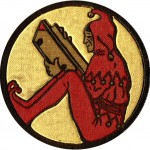 omenclature (n.) A set of terms for things yet to be.
omenclature (n.) A set of terms for things yet to be.

 omenclature (n.) A set of terms for things yet to be.
omenclature (n.) A set of terms for things yet to be.
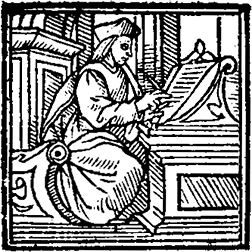 mose in the chine [unclear meaning] be in the final stages of the glanders TS III.ii.50 [Biondello to Tranio as Lucentio, of Petruchio’s horse] possessed with the glanders and like to mose in the chine
mose in the chine [unclear meaning] be in the final stages of the glanders TS III.ii.50 [Biondello to Tranio as Lucentio, of Petruchio’s horse] possessed with the glanders and like to mose in the chine
glanders (n.) horse disease affecting the nostrils and jaws
– Shakespeare’s Words : A Glossary & Language Companion by David Crystal and Ben Crystal
Sara Gruen has finally finished her celebrated Elements for Animals quadrilogy!
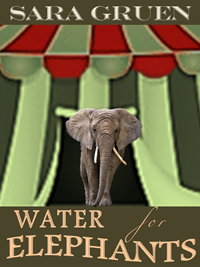
Book 1
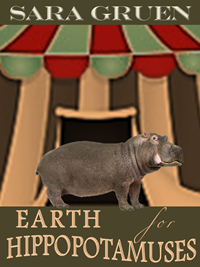
Book 2

Book 3
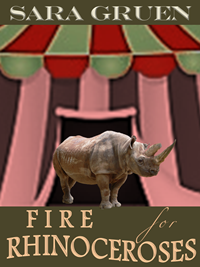
Book 4
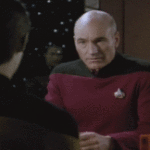
 From Melville House‘s latest ironically Ahab-like rant against their white whale, Amazon:
From Melville House‘s latest ironically Ahab-like rant against their white whale, Amazon:
Remember that ol’ lawsuit between Apple and the Department of Justice? …
Just a reminder: Apple is appealing because the case didn’t go smoothly the first time around. The company called it a “fundamentally flawed endeavor that could discourage competition and harm consumers.” Judge Denise Cote ruled that Apple had violated antitrust laws by intending to set ebook prices through the agency model.
The publishers couldn’t afford to fight, but Apple could. On Monday, the company’s lawyer called attention to its competition, as if no one had thought to bring up Amazon before…
Publishers were trying to set prices along with other retailers like Apple because Amazon owned 90% of the ebook market. [bold emphasis mine] Apple’s lawyer Theodore Boutros argued this week that this is a legitimate way to “come into a market dominated by a monopolist.”
And this from Forbes, which we can assume is more reliable than Apple’s paid advocates:
E-books now make up around 30% of all book sales, and Amazon has a 65% share within that category, with Apple and Barnes & Noble accounting for most of the balance.
Dominating your competition by 40 points and dominating them by 15 points are worlds apart. And, how many of those Amazon sales are due to their insanely user-friendly KDP self-publishing platform? Are we even comparing apples to apples? (Sorry, B&N, but your e-book self-publishing platform is clumsy. I use it, but it’s like you’re not even trying.)
And this logic! “Our anti-trust violations were to fight monopoly…” Orwell is rolling over in his grave.
So, for this reason, I am removing Melville House from the side bar and will no longer waste my time looking to them for reliable information on publishing. Their fevered prejudice against Amazon has gotten to the point where the ratio of information to hate has slipped decidedly toward maniacal hate.
As the Forbes story points out: “An abusive, alcoholic father; a snake-oil salesman; a predatory lion; Nazi Germany: These are some of the metaphors publishers invoke to express their feelings toward Amazon.” There’s no room for that sort of counterfactual idiocy among serious-minded professionals.
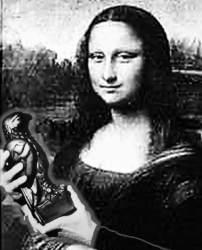 Watching the 1941 film adaptation of Dashiell Hammet’s The Maltese Falcon, I started to notice strange echoes between this hard-boiled classic and Dan Brown’s run-away best-seller (arguably the best-selling book of all time) The Da Vinci Code.
Watching the 1941 film adaptation of Dashiell Hammet’s The Maltese Falcon, I started to notice strange echoes between this hard-boiled classic and Dan Brown’s run-away best-seller (arguably the best-selling book of all time) The Da Vinci Code.
So, on a lark, I decided to make a bullet list of the comparisons. Continue reading
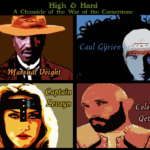
All the talk about the CIA torture report reminded me of that story you had here about the spy torturing the woman in the tree. I didn’t see that scene any more, but I saw you were answering questions about the story and global warming. Is it also about the torture during the war on terror? Did you take that scene out?
Angie K (a reader)
This is turning into a Q&A about H&H. [See previous question on whether it falls in the climate-dystopian “cli-fi” genre.]
Marshal Voight isn’t exactly a spy, but the first novel of High & Hard does culminate in a torture scene. But, there are already hints about where the story is going in Voight’s speech before the Conclave.
This aspect of High & Hard wasn’t really intended as a commentary on 21st century torture so much as a nod to the harsh realities of 17th and 18th century warfare. Fantasy has a bad habit of glamorizing archaic modes of conflict, particularly by attributing the brutal aspects to the “bad guys.” By mashing up classic high fantasy with gritty hard fantasy, in part I wanted to show what happens when the “good guys” are also brutal.
I guess that this same stripping away of the glamor could be seen in the Senate’s torture report. But whether High & Hard serves as a commentary on 21st century warfare is for readers to decide.

 I know. Putting the words “nuance” and “rape” in the same headline is dangerous. I’m probably stepping in a hornet’s nest. But, I have been pretty harsh toward Shia LaBeouf as an artist. I’ve ridiculed his reaction to being called out on plagiarism, I’ve tied him to cultural forces threatening to destroy art and civilization, and … yes … I’ve even dragged the discussion to argumentum ad Nazium.
I know. Putting the words “nuance” and “rape” in the same headline is dangerous. I’m probably stepping in a hornet’s nest. But, I have been pretty harsh toward Shia LaBeouf as an artist. I’ve ridiculed his reaction to being called out on plagiarism, I’ve tied him to cultural forces threatening to destroy art and civilization, and … yes … I’ve even dragged the discussion to argumentum ad Nazium.
So, I feel I owe him some decent human perspective. I need to say something about his claim that a woman raped him during his #IAMSORRY exhibit.
I wrote up a 3400-word essay about the subject. But, to avoid TL;DR, I pared it down to four bullet points: Continue reading
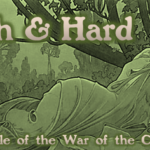
… I read this [High & Hard : The War for the Cornerstone] during its first run here and just started getting into the second run at the new website. I was thinking about the dwarf chimneys destroying the elven forests, and the rising sea levels. Is this intended to be cli-fi?
– AH (a reader)
I had to look up the word “cli-fi” when I got this reader feedback. Continue reading
 Sure, the NFL is in no danger of going broke. But, its viewership has been dipping lately, slumping a few percentage points each year. The folks running the league seem to have recognized the problem, and are trying … well .. things. Things like letting players who are not good enough for the regular league play in the so-called FXFL.
Sure, the NFL is in no danger of going broke. But, its viewership has been dipping lately, slumping a few percentage points each year. The folks running the league seem to have recognized the problem, and are trying … well .. things. Things like letting players who are not good enough for the regular league play in the so-called FXFL.
But, trying to sell your sawdust is no way to keep the mill running. The NFL’s revenues are fan driven, so if there’s a problem with the revenues, there’s a problem with fan distribution. And fan distribution, in the highly geographical realm of grid-iron football, means team distribution. Continue reading

During an interview for National Public Radio, author Katherine Paterson (Bridge to Terebithia, The Master Puppeteer, Jacob Have I Loved) had this to say about message in fiction:
I try very hard to stay away from the word “message,” because I think it’s poison in fiction. I think you tell your story and then the reader gets to decide what he or she will learn from your story. And if they don’t want to learn anything from it, that’s their choice.
You can check out the rest of the interview here!